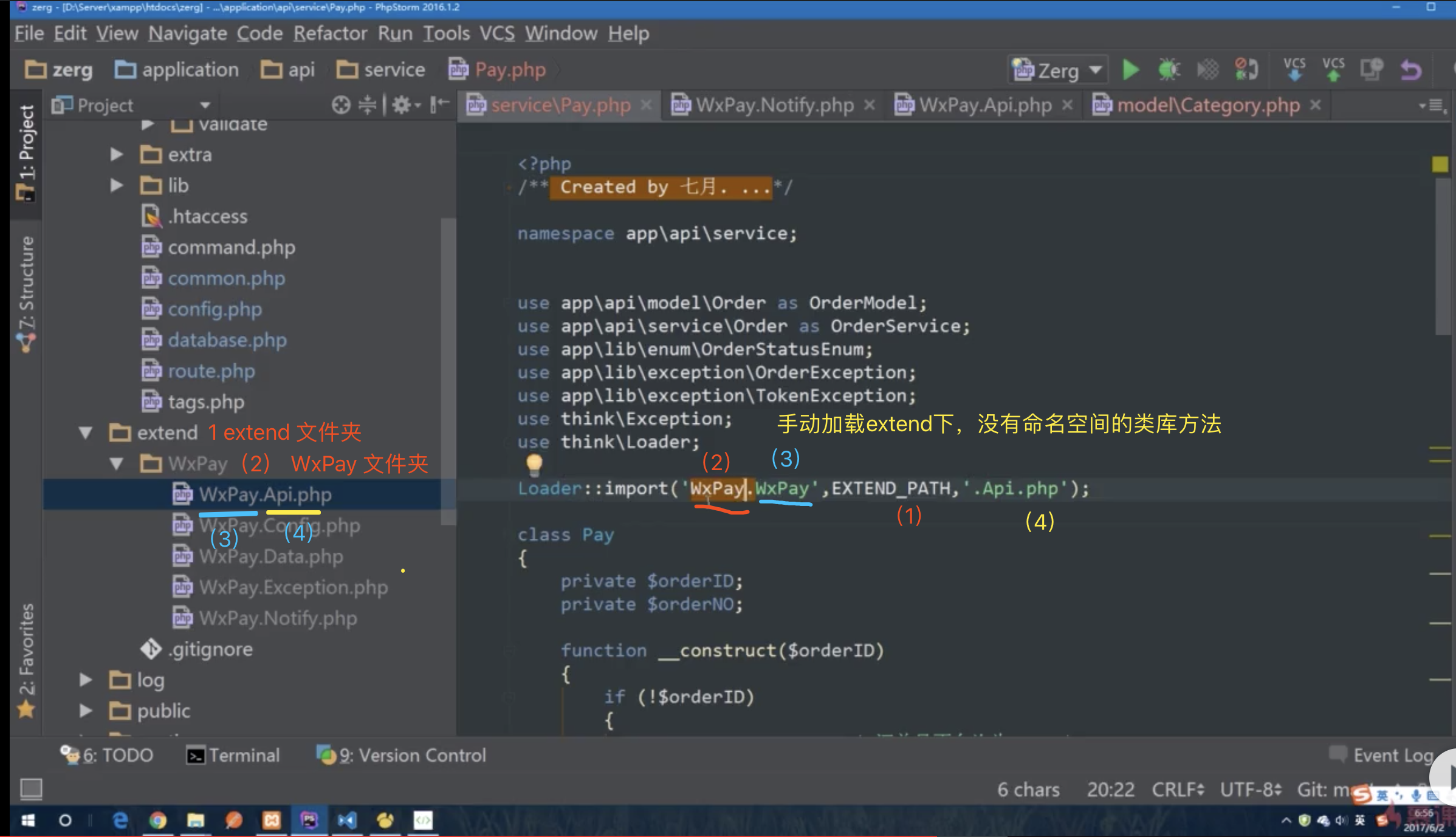您现在的位置是:网站首页>PHP技术PHP技术
PHP判断经纬度是否满足指定经纬度圆形范围内
![]() 草谷2019-03-31【PHP技术】
草谷2019-03-31【PHP技术】
简介通过类中的is_point_in_circle()方法来判断一个经纬度坐标,是否在另一个经纬度坐标的原型范围内
这是一个类,通过网络找来的方法,经过使用有效。
<?php
/**
* Convert.php
* desc:判断经纬度是否满足指定经纬度圆形范围内
* created on 2019/2/21 8:44 PM
* Created by caogu
*/
namespace app\api\controller;
class Convert
{
private $PI = 3.14159265358979324;
private $x_pi = 0;
public function __construct()
{
$this->x_pi = 3.14159265358979324 * 3000.0 / 180.0;
}
/**
* 判断一个坐标是否在圆内-思路:判断此点的经纬度到圆心的距离 然后和半径做比较,如果此点刚好在圆上 则返回true
* @param $point array ['lng'=>'','lat'=>''] array指定点的坐标
* @param $circle array ['center'=>['lng'=>'','lat'=>''],'radius'=>''] 中心点和半径,radius的值貌似是通过反余弦计算的参数,其与距离的关系待明确,有知道的小伙可以留言
*/
function is_point_in_circle($point, $circle){
$distance = $this -> distance($point['lat'],$point['lng'],$circle['center']['lat'],$circle['center']['lng']);
if($distance <= $circle['radius']){
return true;
}else{
return false;
}
}
/**
* 计算两个点之间的距离
* @param $latA float 第一个点的纬度
* @param $lonA float 第一个点的经度
* @param $latB float 第二个点的纬度
* @param $lonB float 第二个点的经度
* @return float
*/
function distance($latA, $lonA, $latB, $lonB)
{
$earthR = 6371000.;//地球赤道半径的米数
$x = cos($latA * $this->PI / 180.) * cos($latB * $this->PI / 180.) * cos(($lonA - $lonB) * $this->PI / 180);
$y = sin($latA * $this->PI / 180.) * sin($latB * $this->PI / 180.);
$s = $x + $y;
if ($s > 1) $s = 1;
if ($s < -1) $s = -1;
$alpha = acos($s);
$distance = $alpha * $earthR;
return $distance;
}
/**
* 判断一个坐标是否在一个多边形内(由多个坐标围成的)
* 基本思想是利用射线法,计算射线与多边形各边的交点,如果是偶数,则点在多边形外,否则
* 在多边形内。还会考虑一些特殊情况,如点在多边形顶点上,点在多边形边上等特殊情况。
* @param $point 指定点坐标
* @param $pts 多边形坐标 顺时针方向
*/
function is_point_in_polygon($point, $pts) {
$N = count($pts);
$boundOrVertex = true; //如果点位于多边形的顶点或边上,也算做点在多边形内,直接返回true
$intersectCount = 0;//cross points count of x
$precision = 2e-10; //浮点类型计算时候与0比较时候的容差
$p1 = 0;//neighbour bound vertices
$p2 = 0;
$p = $point; //测试点
$p1 = $pts[0];//left vertex
for ($i = 1; $i <= $N; ++$i) {//check all rays
// dump($p1);
if ($p['lng'] == $p1['lng'] && $p['lat'] == $p1['lat']) {
return $boundOrVertex;//p is an vertex
}
$p2 = $pts[$i % $N];//right vertex
if ($p['lat'] < min($p1['lat'], $p2['lat']) || $p['lat'] > max($p1['lat'], $p2['lat'])) {//ray is outside of our interests
$p1 = $p2;
continue;//next ray left point
}
if ($p['lat'] > min($p1['lat'], $p2['lat']) && $p['lat'] < max($p1['lat'], $p2['lat'])) {//ray is crossing over by the algorithm (common part of)
if($p['lng'] <= max($p1['lng'], $p2['lng'])){//x is before of ray
if ($p1['lat'] == $p2['lat'] && $p['lng'] >= min($p1['lng'], $p2['lng'])) {//overlies on a horizontal ray
return $boundOrVertex;
}
if ($p1['lng'] == $p2['lng']) {//ray is vertical
if ($p1['lng'] == $p['lng']) {//overlies on a vertical ray
return $boundOrVertex;
} else {//before ray
++$intersectCount;
}
} else {//cross point on the left side
$xinters = ($p['lat'] - $p1['lat']) * ($p2['lng'] - $p1['lng']) / ($p2['lat'] - $p1['lat']) + $p1['lng'];//cross point of lng
if (abs($p['lng'] - $xinters) < $precision) {//overlies on a ray
return $boundOrVertex;
}
if ($p['lng'] < $xinters) {//before ray
++$intersectCount;
}
}
}
} else {//special case when ray is crossing through the vertex
if ($p['lat'] == $p2['lat'] && $p['lng'] <= $p2['lng']) {//p crossing over p2
$p3 = $pts[($i+1) % $N]; //next vertex
if ($p['lat'] >= min($p1['lat'], $p3['lat']) && $p['lat'] <= max($p1['lat'], $p3['lat'])) { //p.lat lies between p1.lat & p3.lat
++$intersectCount;
} else {
$intersectCount += 2;
}
}
}
$p1 = $p2;//next ray left point
}
if ($intersectCount % 2 == 0) {//偶数在多边形外
return false;
} else { //奇数在多边形内
return true;
}
}
}很赞哦! (0)
上一篇: TP5自定义日志记录到文件方法
下一篇: TP5入口文件被修改的问题处理
相关文章
文章评论
点击排行
 TP5入口文件被修改的问题处理
TP5入口文件被修改的问题处理







